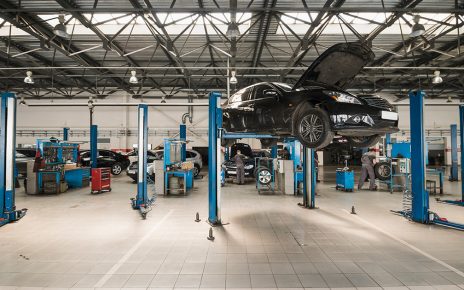Introduction to Automotive Technicians
Welcome to the world of Automotive Technicians – the unsung heroes who keep our cars running smoothly and ensure our safety on the road! These skilled professionals possess a unique blend of technical expertise, problem-solving abilities, and exceptional customer service skills. But what exactly makes a good Automotive Technician? In this blog post, we will explore the necessary qualifications and qualities that set apart top-notch technicians from the rest. So buckle up and join us as we delve into the exciting world of automotive excellence!
Necessary Skills and Qualifications
Necessary Skills and Qualifications
Becoming a successful automotive technician requires a combination of specific skills and qualifications. First and foremost, a solid foundation in technical knowledge is essential. This includes understanding the intricacies of various car systems such as engines, transmissions, electrical components, and more.
In addition to technical expertise, problem-solving abilities are crucial for an automotive technician. Being able to diagnose issues accurately and efficiently is key to providing effective solutions for customers. Whether it’s troubleshooting an engine problem or fixing electrical wiring, technicians need to possess sharp analytical skills.
Communication skills are also vital in this profession. Automotive technicians must be able to effectively communicate with both colleagues and customers. Clear communication ensures that everyone involved understands the problem at hand and the necessary repairs or maintenance required.
Furthermore, physical stamina is important due to the demands of the job. Technicians often spend long hours on their feet, bending over vehicles or lifting heavy parts. Endurance and strength are valuable assets in this physically demanding field.
Staying up-to-date with technological advancements is crucial for automotive technicians today. As cars become increasingly complex with advanced computer systems and innovative features, technicians must continually update their knowledge through ongoing training programs.
Being a skilled automotive technician requires not only technical know-how but also excellent problem-solving abilities, strong communication skills,and physical stamina. By possessing these necessary skills and qualifications,you can excel in this dynamic industry while providing top-notch service to your customers
Importance of Technical Knowledge and Training
Technical knowledge and training are crucial aspects of being a good automotive technician. In this fast-paced industry, it is essential to stay updated with the latest advancements in technology, tools, and techniques. With new models and systems constantly being introduced, technicians need to have a solid foundation of technical knowledge to diagnose and repair vehicles effectively.
Having a strong understanding of various vehicle components such as engines, transmissions, electrical systems, and diagnostics is vital for an automotive technician. This knowledge allows them to accurately identify issues and perform repairs efficiently. Additionally, staying up-to-date with the latest training programs ensures that technicians can adapt to changing technologies in the automotive industry.
Keeping pace with ongoing training not only enhances their skills but also boosts their confidence when handling complex tasks. Automotive technicians who invest time in continuing education demonstrate their commitment to providing high-quality service to customers.
Furthermore, technical knowledge goes hand-in-hand with safety practices. An experienced technician understands the importance of following proper safety protocols while working on vehicles. They are trained to use specialized equipment correctly and take precautions during potentially hazardous procedures.
Continuous learning helps automotive technicians maintain professional growth throughout their careers. By attending workshops or pursuing advanced certifications offered by manufacturers or reputable institutions, they expand their expertise and become more valuable assets within the industry.
In conclusion (as per instructions), possessing technical knowledge through ongoing training sets apart a good automotive technician from others in this highly competitive field. It equips them with the necessary skills and expertise needed for diagnosing complex issues accurately while ensuring customer satisfaction through efficient repairs
Customer Service Skills and Communication
Customer Service Skills and Communication
When it comes to being a good automotive technician, having strong customer service skills and effective communication is essential. Dealing with customers can sometimes be challenging, but with the right approach, it can also be incredibly rewarding.
One of the primary aspects of customer service in this field is listening attentively to customers’ concerns. This allows technicians to understand their needs fully and address any specific issues they may have with their vehicles. Being empathetic and patient goes a long way in building trust and rapport with customers.
Clear communication is equally important. Technicians must explain complex technical terms or repair processes in a way that customers can easily comprehend. This helps alleviate any confusion or anxiety on the part of the customer, ensuring transparency throughout the repair process.
Additionally, maintaining open lines of communication throughout the entire experience is vital for excellent customer service. Regular updates on progress or unexpected challenges not only keep customers informed but also demonstrate professionalism and reliability.
Building positive relationships with customers fosters loyalty and encourages repeat business as well as referrals to friends and family members who may need automotive services.
Exceptional customer service skills combined with effective communication are key factors that set apart a good automotive technician from others in the industry. By mastering these skills, technicians can provide an outstanding experience for their clients while simultaneously establishing themselves as trusted professionals within their community.
Problem-Solving Abilities
Problem-Solving Abilities
Automotive technicians encounter a wide range of issues on a daily basis, from engine malfunctions to electrical failures. That’s why problem-solving abilities are key for any good automotive technician. They need to be able to quickly identify the root cause of the problem and come up with effective solutions.
One essential skill for problem-solving is diagnostic proficiency. Technicians must have a solid understanding of different vehicle systems and be able to use diagnostic tools effectively. This involves analyzing data, interpreting error codes, and conducting thorough inspections.
Additionally, critical thinking skills play a crucial role in solving complex problems. Technicians need to approach each issue with a logical mindset, assessing all possible causes and considering potential solutions before taking action.
Adaptability is also important when it comes to troubleshooting automotive issues. Problems can arise unexpectedly or vary in complexity, so technicians must think on their feet and adjust their strategies accordingly.
Furthermore, attention to detail cannot be overlooked in problem-solving scenarios. Every small clue matters and can lead an automotive technician closer to finding the solution they seek.
Having strong problem-solving abilities enables automotive technicians not only to fix vehicles but also ensures that they provide efficient service while minimizing costs for customers – making them invaluable assets within the industry.
Physical Demands of the Job
Physical Demands of the Job
Being an automotive technician is a physically demanding job that requires strength, stamina, and agility. Technicians often find themselves working in tight spaces, contorting their bodies to reach difficult-to-access areas under vehicles. They may need to lift heavy tools and equipment, maneuver large parts, or spend long hours on their feet.
The physical demands of the job can take a toll on the body over time. Technicians may experience muscle strain or fatigue from repetitive motions like wrenching or lifting heavy objects. They must also be mindful of safety precautions to avoid workplace accidents.
Additionally, automotive technicians are exposed to various environmental factors such as extreme temperatures and loud noises. Working in garages with inadequate ventilation can expose them to harmful fumes and chemicals.
To stay fit for this demanding career, it’s essential for technicians to prioritize their physical well-being. Regular exercise and stretching help maintain flexibility and prevent injuries. Adequate rest periods between tasks allow the body to recover.
Being an automotive technician requires not only technical knowledge but also physical fitness. The demands of the job necessitate strength, endurance, and resilience. By taking care of their bodies through proper exercise and rest practices, technicians can ensure they are at their best every day on the job.
The Role of Technology in the Automotive Industry
The automotive industry has undergone significant technological advancements in recent years, revolutionizing the way vehicles are designed and serviced. Technology plays a crucial role in every aspect of an automotive technician’s job, from diagnosing complex issues to repairing and maintaining vehicles.
One of the most prominent technologies used in the automotive industry is diagnostic equipment. These sophisticated tools allow technicians to quickly identify problems by connecting to a vehicle’s onboard computer system. By analyzing data and error codes, technicians can pinpoint issues accurately and efficiently.
Additionally, technology has greatly improved communication between technicians and customers. With digital platforms and mobile apps, customers can easily schedule appointments, track their vehicle’s progress, and receive real-time updates on repairs. This streamlined communication enhances customer satisfaction and overall service experience.
Furthermore, technology has enabled remote diagnostics capabilities for automotive technicians. They can now access a vehicle’s systems remotely to troubleshoot minor issues or perform software updates without requiring the physical presence of the vehicle in the workshop.
Moreover, advancements like electric vehicles (EVs) have presented new challenges for technicians but also opened up exciting opportunities. EVs require specialized knowledge due to their unique components such as batteries and charging systems. Automotive technicians must stay updated with these emerging technologies through continuous training programs.
Technology continues to shape the automotive industry profoundly. It empowers automotive technicians with advanced diagnostic tools, improves customer communication channels, enables remote diagnostics capabilities while presenting both challenges and growth opportunities within this dynamic field.
Growth Opportunities for Automotive Technicians
Growth Opportunities for Automotive Technicians
As the automotive industry continues to evolve and advance, so do the opportunities for automotive technicians. With technological advancements and an increasing demand for skilled professionals, there are several avenues for growth within this field.
One of the most promising areas of growth is in electric vehicles (EVs). As more consumers make the switch to electric cars, there will be a greater need for technicians who specialize in servicing and maintaining these vehicles. This presents a unique opportunity for automotive technicians to expand their skillset and become experts in EV technology.
Additionally, advancements in autonomous driving technology have opened up new possibilities for automotive technicians. Self-driving cars require specialized maintenance and repair, creating a niche market that technicians can tap into. By staying updated on the latest developments in autonomous vehicle technology, technicians can position themselves as valuable assets in this emerging field.
Furthermore, with an increasing focus on sustainability and environmental consciousness, there is growing demand for technicians who specialize in hybrid vehicle maintenance. These individuals have expertise not only in traditional internal combustion engines but also possess knowledge of electric systems found in hybrid cars. This specialization allows them to cater to eco-conscious consumers while providing lucrative career opportunities.
Moreover, as vehicles become more complex with integrated computer systems and advanced diagnostics tools, there is a rising need for technologically savvy automotive technicians. Those who invest time into obtaining additional training or certifications related specifically to digital diagnostics will find themselves at an advantage when it comes to job prospects.
In conclusion Find ways To keep ahead by embracing these emerging trends And investing In further education And training within the automotive industry Will ensure that you remain competitive And open doors For personal growth And advancement
Challenges Faced by Automotive Technicians
Challenges Faced by Automotive Technicians
Being an automotive technician is not without its challenges. This profession requires individuals to possess a wide range of skills and knowledge, as well as the ability to handle various obstacles that may arise on a daily basis.
One of the primary challenges faced by automotive technicians is staying up-to-date with rapidly evolving technology in the automotive industry. With advancements in electronics and computer systems in vehicles, technicians must continually update their technical knowledge and skills to effectively diagnose and repair modern cars. This constant learning process can be demanding but necessary for success in this field.
Another challenge that technicians often face is time management. They are typically working on multiple projects simultaneously, which requires them to prioritize tasks efficiently while maintaining quality workmanship. Meeting deadlines while ensuring thoroughness can be quite challenging but essential for customer satisfaction.
Dealing with difficult customers can also pose a challenge for automotive technicians. Effective communication and customer service skills are crucial when interacting with clients who may be frustrated or anxious about their vehicle issues. Technicians must remain calm, professional, and empathetic when addressing customer concerns, even if they themselves are under pressure.
Physical demands should not be overlooked either – this profession involves physical labor such as lifting heavy parts or equipment, standing for long periods, and maneuvering in tight spaces under vehicles. These physical demands can take a toll on the body over time if proper care is not taken.
Another significant challenge faced by automotive technicians is finding solutions to complex problems that may arise during repairs or diagnostics. Every car presents unique challenges requiring critical thinking skills and problem-solving abilities from the technician’s end. Sometimes troubleshooting becomes like solving puzzles where patience plays an important role.
In conclusion,
the life of an automotive technician comes with its fair share of challenges – staying updated with technology advancements, managing time effectively, dealing with difficult customers, handling physically demanding tasks,and finding solutions to complex problems require dedication,diligence,and resilience.
However, despite these challenges,being a successful automotive technician can be immensely rewarding for those
How to Become a Successful Automotive Technician
Becoming a successful automotive technician requires a combination of technical skills, dedication, and a strong work ethic. Here are some key steps to help you on your path:
1. Education and Training: Start by earning a high school diploma or GED. Consider enrolling in an accredited automotive technology program to gain the necessary knowledge and hands-on experience. This will provide a solid foundation for your career.
2. Gain Experience: Seek out internships or entry-level positions at local repair shops or dealerships. This will allow you to apply what you’ve learned in real-world situations and develop practical skills.
3. Stay Updated: The automotive industry is constantly evolving with new technologies and advancements. It’s crucial to stay updated through continuing education courses, workshops, and manufacturer-specific training programs.
4.
Communication Skills: Effective communication with customers is essential as it helps build trust and ensures clear understanding of their concerns.
5.
Problem-Solving Abilities: A successful technician is able to diagnose complex issues accurately by employing logical thinking and problem-solving techniques.
6.
Time Management: Being able to prioritize tasks effectively is important in maintaining efficiency within the workshop setting
7.
Passion for Learning : Being curious about new developments in the field can help keep technicians motivated throughout their careers
Remember that success as an automotive technician isn’t just about technical knowledge; it also involves building strong relationships with customers, continuously improving your skills, staying adaptable in an ever-changing industry, and always striving for excellence!
Conclusion
Conclusion
Being a good automotive technician requires a unique combination of skills, qualifications, and personal qualities. Technical knowledge and training are essential for staying updated with the latest advancements in automotive technology. However, it is equally important to possess strong customer service skills and effective communication abilities to provide excellent service.
Problem-solving abilities play a crucial role in diagnosing and fixing complex issues that vehicles may encounter. Automotive technicians also need to have physical stamina and agility as they often work in physically demanding conditions.
With the rapid advancement of technology, automotive technicians must adapt and learn how to use various diagnostic tools and software programs effectively. This technological revolution brings both challenges and growth opportunities for those working in the automotive industry.
While there are challenges faced by automotive technicians such as long hours, tight deadlines, or dealing with difficult customers, there are also plenty of growth opportunities available. With experience and additional certifications or specializations, automotive technicians can advance their careers into supervisory roles or even become shop owners.
To become a successful automotive technician, one should pursue proper education from reputable trade schools or technical institutes. Building practical experience through internships or apprenticeships is also beneficial for gaining hands-on knowledge.
Becoming a good automotive technician requires continuous learning, dedication to excellence in technical skills as well as customer service skills. It is an exciting career path filled with opportunities for growth and development within the ever-evolving world of automobiles!




